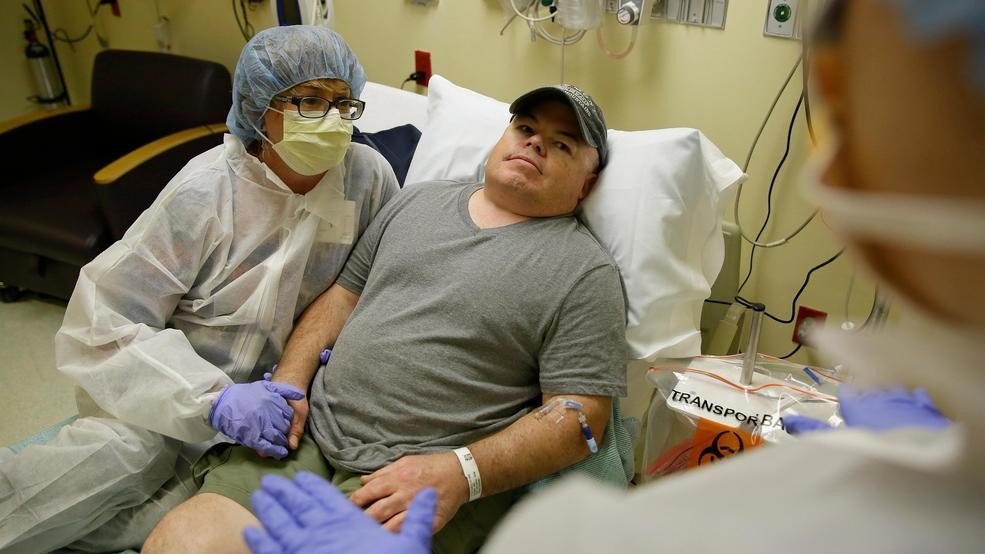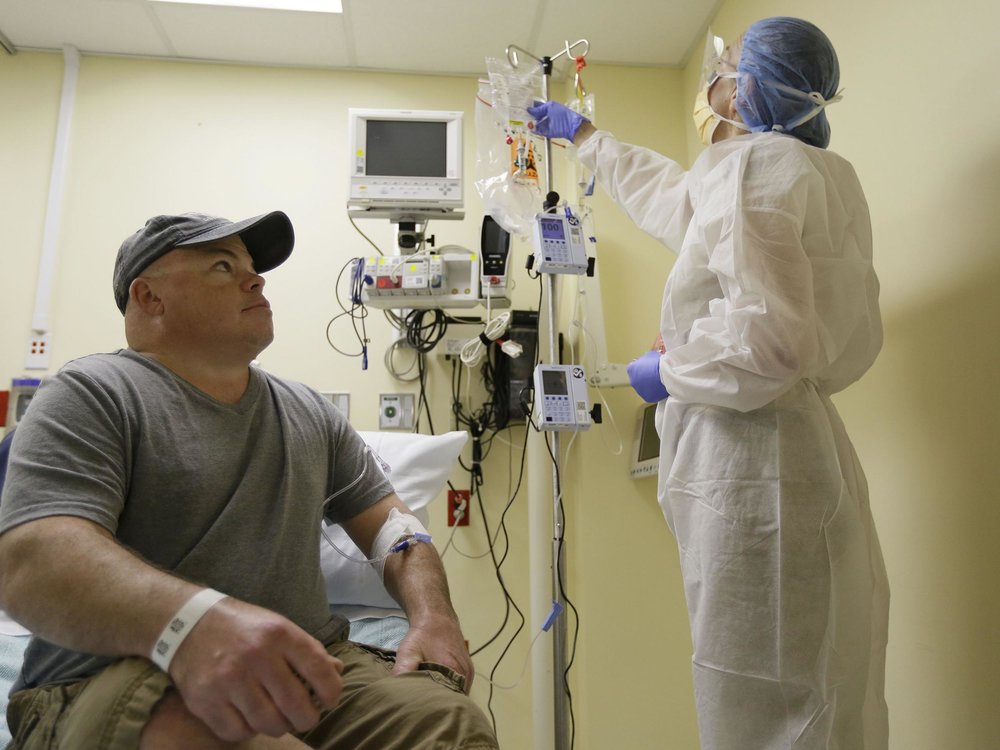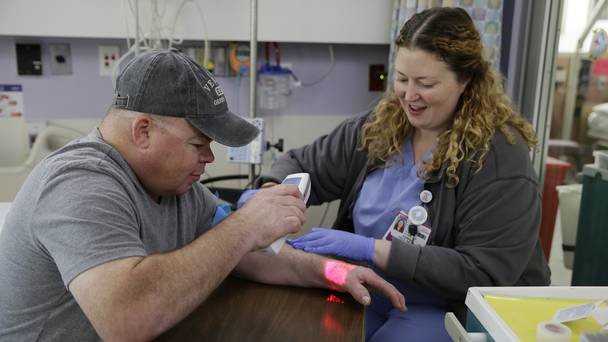Scientists have made a breakthrough in medicine with the creation of a revolutionary gene therapy that could treat diseases and disorders that had previously been declared incurable. The treatment has been approved by the Food and Drug Administration in U.S and is considered safe to use on humans.
What is Hunter Syndrome?
Brian Madeux is the first man ever to receive this gene-editing treatment for his incurable Hunter Syndrome. Now at the age of 44, Madeux was born with this rare condition and despite seeking treatments from various doctors, his syndrome has not been cured.

Brian Madeux, 44
But for the first time ever, there may be a glimmer of hope for him to lead a normal life. Hunter Syndrome, also known as Mucopolysaccharidoses II, is a rare genetic disorder that causes damage to body cells and affects 1 in every 100,000 men.
People suffering from the Hunter Syndrome lack a key enzyme required for the breakdown of connective tissues. As a result, waste inside the cells is not broken down and it gradually accumulates over time. This build-up of waste inside the tissues happens in all vital organs such as heart, lungs and even the brain. Patients suffering from the Hunter Disorder experience symptoms such as hearing difficulties, breathing problems and other serious health complications which can worsen over time and shorten the lifespan of the patient.
Dr. Paul Harmatz, who has observed several patients like Brian Madeux before claims that in most cases, the sufferers of Hunter Disorder die from organ failure before they can reach the age of twenty.
How the New Treatment Works?
The engineers of the new revolutionary treatment that may give Brian Madeux a new life explain that curing the Hunter Syndrome is as simple as hooking up the patient to an IV which contains the gene editors along with the corrected copies of the gene to replace the faulty ones in the body upon entering the bloodstream.
Madeux’s doctors said that the infusion lasts from two to three hours and once the procedure has been completed, they must wait for a few months before seeing any improvements in the patient’s condition. Sangamo Therapeutics’s chief medical officer and pioneer of the unique treatment, Dr. Edward Conner said that he and his team are hopeful that the therapy will work the way they intend it to. It is only a matter of time before this gene-editing treatment becomes a breakthrough in the world of medicine.

It’s only a matter of time before this gene-editing treatment becomes a major part of the world of medicine
A Step in the Right Direction
Brian Madeux and several others who have been affected by the Hunter Syndrome are anxiously awaiting the outcome of the treatment, hoping that they may finally have a shot at living a healthier, longer life. Before this groundbreaking genetic treatment, Hunter Syndrome patients had to rely on frequent enzyme replacement therapies to manage their condition.
Despite the expensive procedures, the patients still suffered from painful symptoms such as joint pain and were unable to avoid progressive damage to their vital organs. The new treatment offers an easy and pain-free solution for eradicating genetic mutation that causes the enzyme deficiency therefore getting rid of the syndrome once and for all.

An easy and pain-free solution for eradicating this type of genetic mutation is now a reality
Patients Get Only One Shot at Effective Therapy
Dr. Connor explains that genetic disorders like the Hunter Syndrome are relatively simple to treat with the new experimental therapy since only one specific type of gene is affected by this condition. But the precision for this treatment is extremely crucial in order for it to work.
Our body houses over 30,000 different types of genes and the treatment must act only on one specific type that needs replacing. The patients only get one chance to receive effective therapy, if the initial treatment fails the body becomes immune to the virus and no longer responds to it.
Madeux has been from the hospital after being kept under observation for 24 hours. The patient has shown no signs of complications from the therapy so far and the doctors will be keeping a close eye on his blood cells to see whether the mutated gene has been replaced with the corrected version.
The first trial of the gene-therapy is seen as a huge step forward in the world of medical science and Dr. Connor is hopeful that Madeux’s bravery will pay off in a big way. “I’m humbled by Madeux’s decision to participate (in this experiment)” he said.










